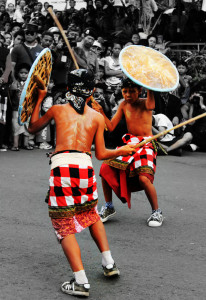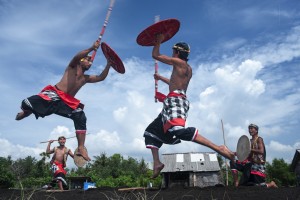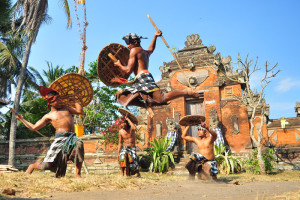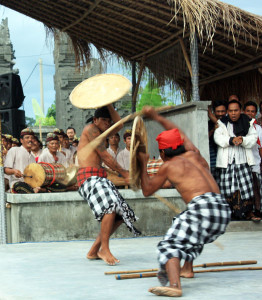Gebug Ende
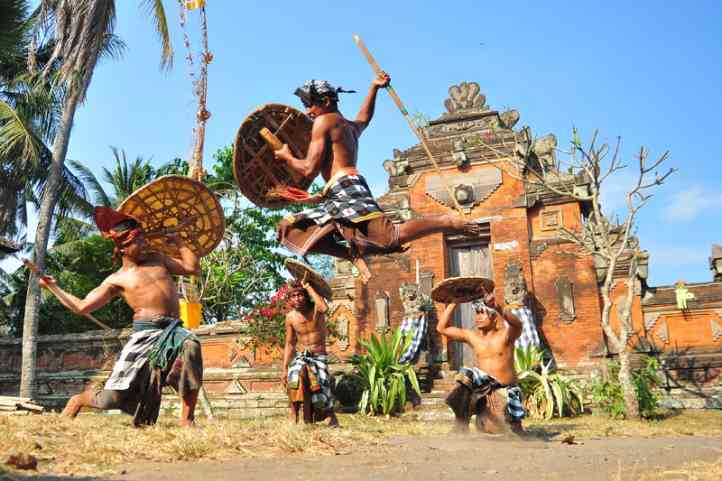
Accompanied with traditional Balinese orchestra gamelan, the music was alive and energetic. Before the show started, two of the dancers acted as referees. They first demonstrated the dance movements and regulations which should be followed by the dancers. The dancers are only allowed to hit the torso of one’s enemy. Each of them shield their heads to protect from the rattan stick.
During the course of the dance, each dancer had to work hard to defeat his enemy. While waiting his chance to hit the stick, he frequently made humorous gestures and teased his enemy creating laughter from the audience.
The Gebug Ende is quite unique as it has certain rules that have to be followed by the participants. Led by a referee, known as Pakembar, and a jury known as Saya. This dance starts with two dancers standing in the middle of arena, on each side of a line that is drawn in the middle of arena, while the rest sit in a circle, cracking jokes and singing, while waiting their turn. The pakembar (referee) gives a signal to begin the dance. The dance is come to a halt when two dancers are out of the arena. The referee stops the dance or maybe the fight and orders the dancers to stand in the middle of the arena and resume the dance. The dance is stopped when one of the dancers spills some blood to ground or if there is no blood spilled yet, the dance is stopped when the pakembar sees a sign of fatigue on the face of the dancers. Then the pakembar will call the next men to the arena. This continues until all have had a turn. Sometimes the fight becomes very fierce and the dancers are thrown of the stage from the blows of the rattan stick. Bruises and wounds are common in this ritual. The saya (jury) does not decide which of the two contestants loses or wins the game. The spectators have the right to do so. However, the decision is usually kept in the heart of the spectators, they do not announce the winner, a simple and honest praise is the sole reward given to the winner.
Seraya people, who served as Karang Asem’s royal troops, were believed to bring this Lombok dance into Bali island. Gede’s analysis was primarily based on the fact that no other communities in Bali recognize Gebuk Ende ritual dance.
On the other hand, almost all villagers in Lombok performed this dance under a different name, Perisian dance.
In Bali, the ritual dance has been performed for generations in Seraya and Gerokgak villages. Many scholars revealed that the dance’s movements represented pre-historic art forms. The dance was used as a ritual to invite rains, especially before cultivating the seeds of the corn plants.
Because of its ritual function, any performance of Gebuk Ende dance was preceded by a series of ceremonies completed with numerous offerings dedicated to Ida Sang Hyang Widi Wasa, the God. For the Bali Arts Festival, they only presented offerings to ask for permission and blessings.






